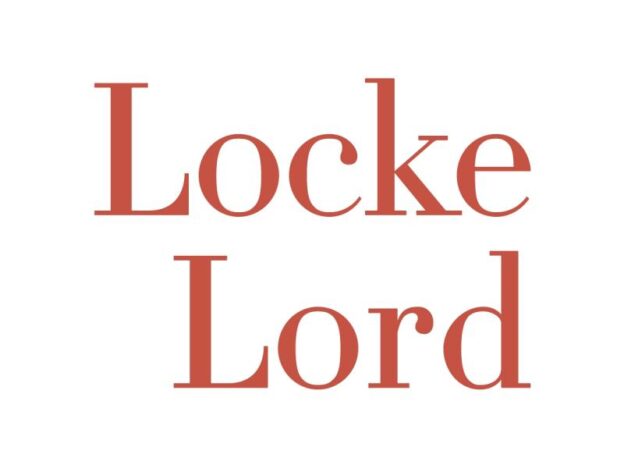By Brian Casey, Jon Gillum and Greg Norton
The Oregon Court of Appeals recently held in TruNorth Warranty Plans of North America v. Department of Consumer and Business Services, that a service contract — commonly referred to as an extended warranty — covering commercial property is subject to Oregon’s consumer service contract laws.[1]
The holding was the result of a rare judicial appeal from an administrative law judge’s decision.
Like many other states, Oregon has codified a legal framework for regulating service contracts as a form of so-called insurance-light for third-party contract issuers.
A service contract is typically an agreement by the issuer to repair, replace or indemnify for the operational or structural failure of property resulting from a defect in materials, workmanship, or normal wear and tear in exchange for the payment by the contract purchaser.
However, when such contracts cover commercial property, numerous regulatory classification questions arise.
Service contracts are plentiful in the consumer automobile, electronics and residential home industries and are typically covered by a well-defined legal framework with variations among the states.
A third-party issuer of these contracts — i.e., not the manufacturer or seller of the covered property — would be issuing an insurance policy and, thus regulated as an insurance company, but for state service contract laws. Such laws are usually but not always, as in Oregon, found within state insurance codes, and these laws deregulate the product from being insurance.
Service contract providers or obligors must be licensed or registered in many states — as must administrators and sellers in some states — and are typically subject to certain financial solvency requirements.
However, one consistently gray area[2] under state service contract laws is the regulatory status of service contracts between two commercial parties, such as when the owner of the covered property is a commercial entity rather than an individual consumer, or when the covered property is used for commercial purposes in such cases as agricultural equipment, tractor trailers or hospital equipment.
Some states’ service contract laws expressly exclude commercial service contracts from their scope, recognizing that commercial service contract purchasers do not need the same protections as purchasers of consumer service contracts.
However, Oregon’s service contract laws do not expressly exclude commercial service contracts from their scope. They only expressly exclude product maintenance agreements and true warranties — i.e., those typically governed by the Magnuson-Moss Warranty Act[3] — when offered for consumer products and those warranties that are generally unregulated when offered to commercial parties.[4]
In general, some states have service contract laws that expressly apply to commercial service contracts, and therefore may make applicable any corresponding obligor, seller and/or administrator licensing requirements and form-filing requirements as well as exemptions from regulation as insurance.[5]
Some states exempt commercial service contracts from their service contract laws and further state that such contracts are not considered to be insurance.[6]
Some states exempt commercial service contracts from their service contract laws, but are silent as to whether such contracts are considered to be insurance.[7] And some states do not expressly address the difference between commercial and consumer service contracts.[8]
While not free from doubt, the likely legislative intent in most states with commercial service contract carveouts is that they are intended not to be regulated in either capacity — neither regulated as service contracts nor regulated as insurance products.
Indeed, some state insurance departments have taken informal enforcement positions to this effect. Recently in its 2023 legislative session, Georgia codified this result following inquires to its insurance department whether commercial service contracts were insurance policies.[9]
Given this murky landscape, there is a possibility that, in some states, a commercial service contract could be considered an unauthorized insurance product, exposing the obligor, seller and administrator to the risk that they have engaged in the unauthorized business of insurance.
This could potentially result in regulatory fines, revocation or suspension of existing service contract licenses and liability for payment of state insurance premium taxes on the fees collected from sales.
Similarly, insurance companies that offer commercial liability insurance policies that insure the performance obligations of commercial service contract obligors could potentially face liability for aiding and abetting unauthorized insurance conduct in states that do not expressly deregulate commercial service contracts as noninsurance products.
With that said, numerous industry participants do business in the nebulous legal landscape by offering commercial service contracts nationwide without clear legal authorization but also without notable enforcement actions.
In TruNorth, the Oregon Court of Appeals found that a vehicle service contract issued to cover a commercial vehicle is regulated under Section 646A.150 of the state’s service contract act.[10]
The opinion arose from an appeal of an order issued by the director of the Oregon Department of Consumer and Business Services following a contested case hearing before an administrative law judge.[11]
That hearing followed allegations that the service contract obligor purportedly failed to comply with statutory requirements applicable to vehicle service contracts even though the obligor claimed that such requirements did not apply to commercial vehicle service contracts.[12]
On the one hand, this case is good news for the commercial service contract industry in that the Oregon Division of Financial Regulation did not allege that TruNorth’s commercial vehicle service contract was an insurance policy. On the other hand, the court nevertheless concluded that the contract is regulated under the state’s service contract act.
The TruNorth opinion holds that a commercial service contract purchaser is a consumer, notwithstanding several markers in the Oregon service contract act and its legislative history that support the interpretation that a regulated service contract is one issued to and purchased by a retail consumer, or for personal, family or household products.[13]
Indeed, the Oregon service contract act’s preamble states in relevant part that is purpose is to:
Encourage innovation in the marketing and development of more economical and effective means of providing services under service contracts, while placing the risk of innovation on the obligors rather than on consumers.[14]
The reference to “consumer,” which is not defined in the act, also appears in two other sections of the act:
- The definition of a service contract, requiring that payment of the “[c]onsideration for a service contract must be stated separately from the price of the consumer product”[15]; and
- “If a service contract seller is not the same person as the obligor under the service contract, the service contract seller shall remit the agreed-upon consumer purchase price of the service contract to the obligor.”[16]
While not addressed in the opinion, an Oregon service contract must specify its covered “merchandise,” a somewhat generic term that could mean both personal and commercial merchandise.[17]
Nevertheless, given the absence of a statutory definition of “consumer,” and based on its arguably plain meaning as “one that utilizes economic goods,” the court affirmed the administrative decision that a consumer can include consumption of goods for both personal and commercial or business purposes.
Supporting the court’s interpretation is the Oregon service contract act’s definition of “service contract holder”[18] and its use of the term “person” that purchases or holds a service contract. The term “person” includes, as is oftentimes that case in statutory definitions, not only natural persons but also many forms of business entities.[19]
This case should be a warning to obligors and sellers of commercial service contracts that such contracts are subject to regulation in Oregon and may be subject to regulation under state service contract laws in other states. However, as noted above, the question remains whether these contracts might also be found to be insurance in some states.
In other words, the TruNorth opinion is a wake-up call that commercial service contract obligors cannot assume that their products are simply unregulated.
In addition, the interpretation of the term “consumer” to include commercial buyers in Oregon could also lead to perverse interpretive results in other Oregon statutes referencing a consumer both within and without its insurance code.
Brian T. Casey is a partner and co-chair of the regulatory and transactions insurance practice group at Locke Lord LLP.
Jon Gillum is senior counsel at the firm.
Greg Norton is an associate at the firm.
The opinions expressed are those of the author(s) and do not necessarily reflect the views of their employer, its clients, or Portfolio Media Inc., or any of its or their respective affiliates. This article is for general information purposes and is not intended to be and should not be taken as legal advice.
[1] TruNorth Warranty Plans of North America v. Dept. of Consumer and Business Services , 327 Or.App. 603 (August 23, 2023).
[2] For a discussion of other gray areas involving service contracts and warranties, see Brian Casey, Jon Gillum, and Greg Norton, “As EVs Surge, Regs for Charter Warranties Remain Murky,” Law360 (Apr. 3, 2023); Brian T. Casey & Jon L. Gillum, “Extending the Murky Divide Between Warranty and Insurance,” Law360 (Aug. 21, 2017); Brian T. Casey & Jon L. Gillum, “Okla. Ruling Highlights Nuances In Drafting Service Contracts,” Law360 (Jun. 15, 2020).
[3] See Brian T. Casey & Jon L. Gillum, “Navigating Federal and State Rules For Extended Warranties” Law360 (Feb. 8, 2019), republished in Warranty Week (2019) and the Journal of Consumer & Commercial Law (Vol. 23, No. 1, Fall 2019).
[4] ORS § 646A.150(2).
[5] K.S.A. § 40-201(a)(2)
[6] S.C. Code Ann. § 38-78-10
[7] Wis. Stat. § 616.52
[8] UCA § 31A-6a-101
[9] See, GA HB 222 amending O.C.G.A. § 33-7-6 to exclude commercial service contracts from the definition of property insurance.
[10] See TruNorth, 327 Or.App. at 604-612.
[11] See id.
[12] See id.
[13] See id.
[14] ORS § 646A.150(1)(b).
[15] ORS § 646A.154(1)(c).
[16] ORS § 646A.154(10).
[17] ORS § 646A.156(5).
[18] ORS § 646A.152(5).
[19] ORS § 646A.152(3).

